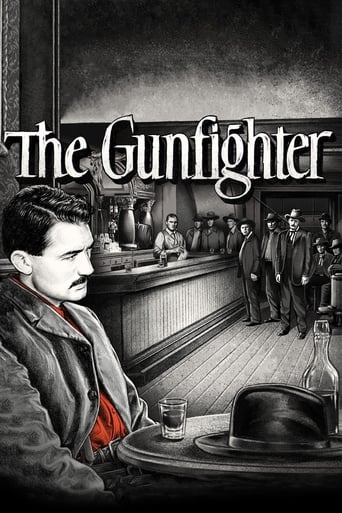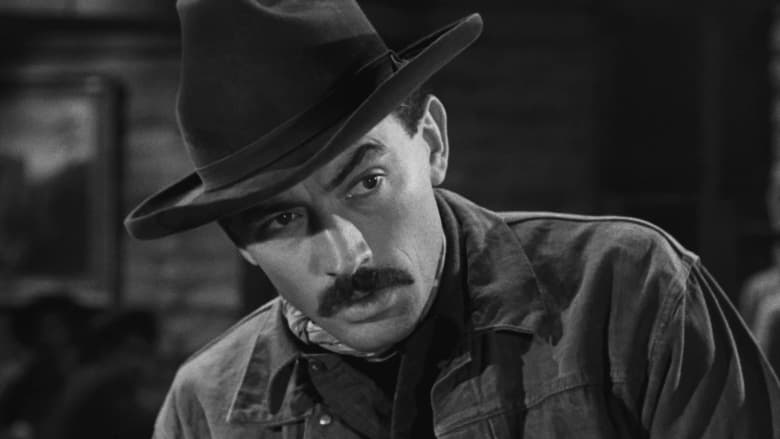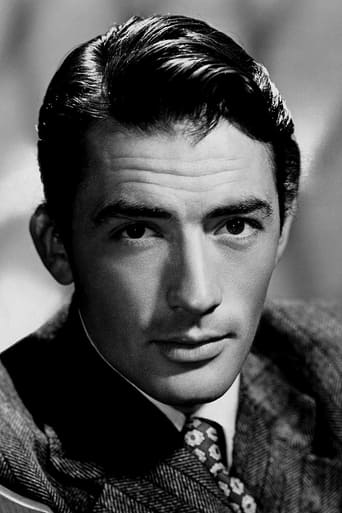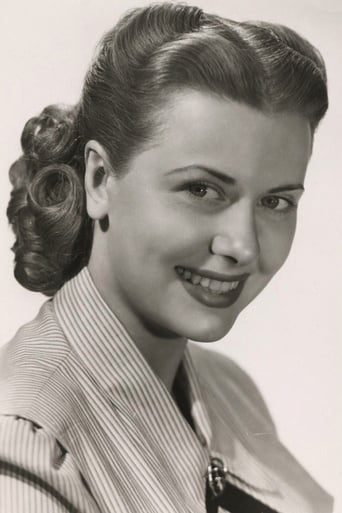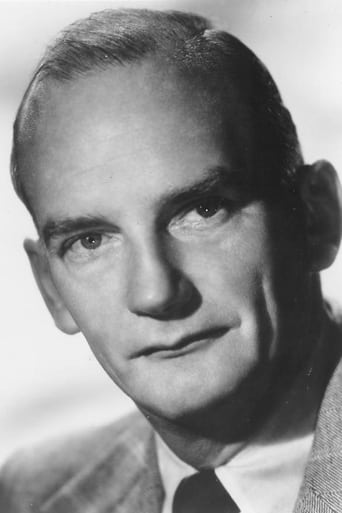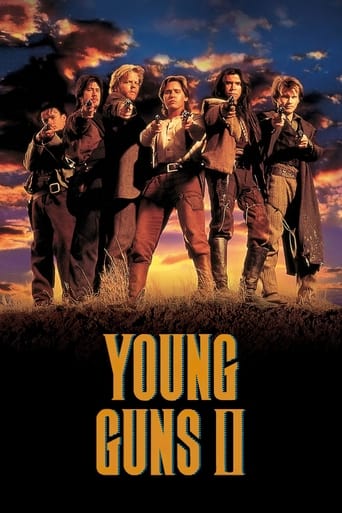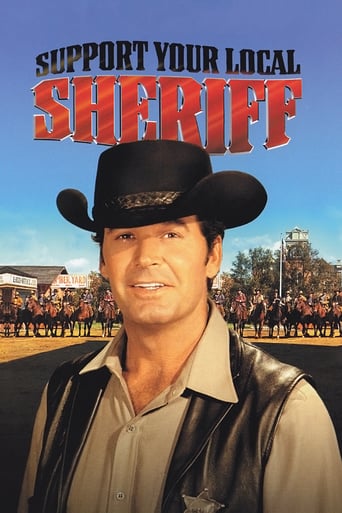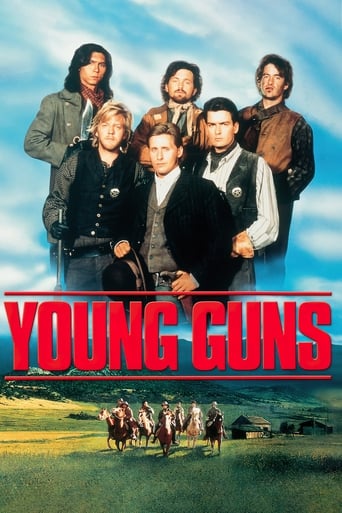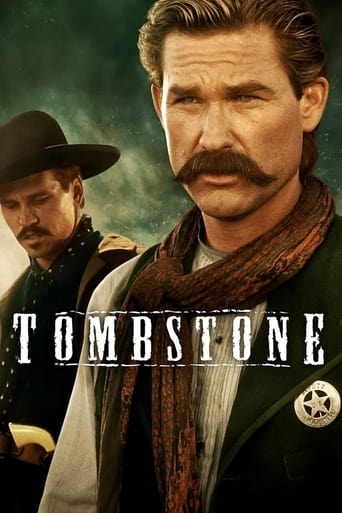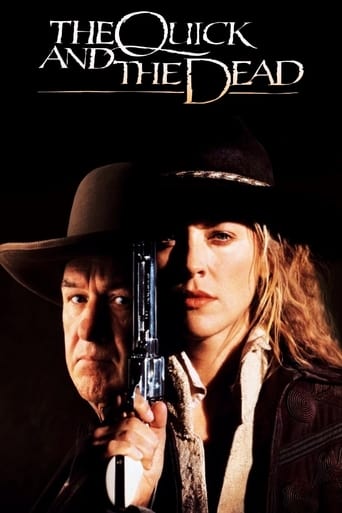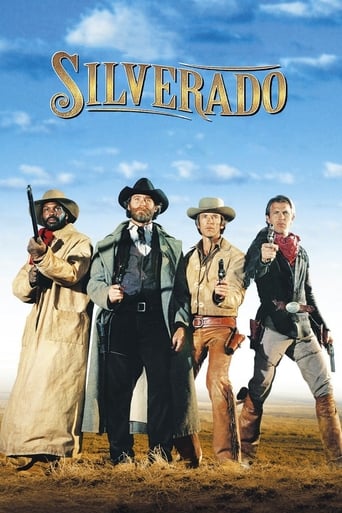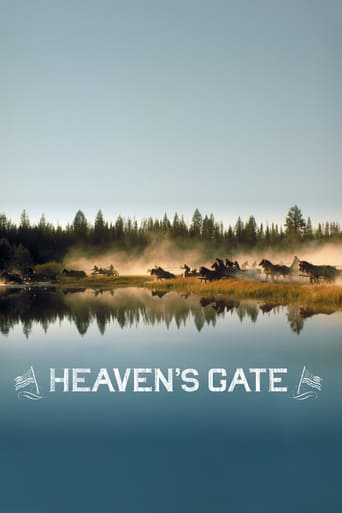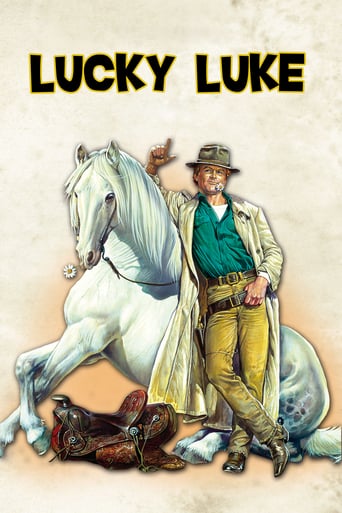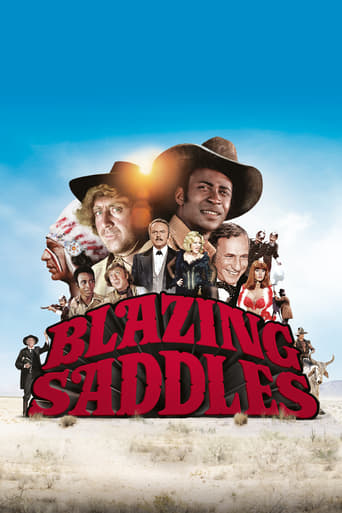The Gunfighter (1950)
The fastest gun in the West tries to escape his reputation.
Watch Trailer
Cast


Similar titles
Reviews
Crappy film
As Good As It Gets
Tells a fascinating and unsettling true story, and does so well, without pretending to have all the answers.
This is one of the few movies I've ever seen where the whole audience broke into spontaneous, loud applause a third of the way in.
THE GUNFIGHTER is an unusual western. The film begins with a duel between the two gunmen as usual for many westerns. However, the story later processed extremely interesting topics, but retains the atypical hero (the gunman) at its center.Tension grows at the very end of the film, what is tested and almost always successful recipe. However, in this case is somewhat predictable. The director has managed to combine in one character two incompatible facts. Top gunman (top gun of the West) who hates to shoot. A very clever move that changes the experience of this film. The main character is actually a man who runs away from trouble, but trouble persistently follows him. The infamous killer, who is actually quite a positive phenomenon trying to avoid the fate of remembering the past and looking for a better future. The centerpiece of the film is in fact a rough drama that we briefly shows the extremes of the Wild West. It is extremely important when you first pulled ....Gregory Peck as Jimmy Ringo He is probably the right choice for the role of the main hero. One lonely, isolated and withdrawn character who sees the future in a peaceful family life. Understanding of course there is, but what it represents and what in fact he wants to have are two completely different meaning. Millard Mitchell as Marshal Mark Strett in a real friendly role. He is notorious gunslinger closed immediately or drive him away from the city. However, a friend is something that in this film really exists.The incidents are part of daily life. They are also part of the dramatic, humorous and sentimental atmosphere.
A Proud Movie that could Side with the Films of Budd Boetticher and Anthony Mann, this Early Psychological Study is one of the Best of the Loaded Western Genre. its Simplistic Style and Sombre Tone is Handled with Finesse by Director Henry King with a Mature, Classy Script by William Bowers.Tense, Tight, and Taut at 85 Minutes the Film is a Character Study, in Fact it is All About Character with no Reference to Society or Towns, Settling the West, or any such Large Notions. This is Personal. Personal Choices and Consequences. Gregory Peck at His Brooding and Suffering Best. Smoldering Regret with One Last Try to Reunite His Family and Hide Far, Far Away, "...where nobody ever heard of me." A Fine Cast Lends Support with an Outstanding and Believable Millard Mitchell as a Former Friend.This of Course is a Predetermined Self-Delusion, not Only because He can Never Outrun His Past, but the Motion Picture Code of the Time, would not have it. Utilizing Divine Intervention and Controlling the Fate of Anyone who Dare Sin on Screen.If there is one Minor Quibble, it is the Very Final Scene where we get Corny Closing Lines that may make some Cringe, it is at the Church......"I am Mrs. Jimmy Ringo" ..."and his boy".
The gunman in western movies is often a glamorous figure. (Who can forget tall, handsome, gallant Henry Fonda in "Warlock"?) We find him fascinating even though we know he is at best outside the law and at worst a murderer.In "The Gunfighter," a terrific movie, Gregory Peck's Jimmy Ringo has some of the mystique of the gunman, but mostly what we see is his weariness of the life he has led and his fear that he is doomed to be hunted down and shot by some upstart gunman, pretty much like the Jimmy Ringo of 15 or 20 years before. Ringo at age 35 or so is now something of a gentleman in his relations with others, and we learn that he lives by a code--never drawing on an unarmed man, for example. But there is no attempt to whitewash his past. For all we know, his career has been one of unredeemed criminality.What captures our sympathy for Jimmy Ringo and holds us in suspense as to his outcome is not the glamor of the gunfighter but the vulnerability of a tired man desperate to elude his fate. He has convinced himself that he can start a new life with the woman he has always loved but abandoned eight years ago, along with their young son.The entire story covers a span of only a few hours. Pursued by three men who seek to kill him, Jimmy Ringo has arrived in an obscure town with precious little time in which to make his appeal to the woman and her boy. It is clear that his idea of reuniting with her and taking her and the boy away to a place where no one has heard of him is a fantasy. In the end, he dies the way he has lived--by gunfire."The Gunfighter" is a well-written, tightly constructed, tragic story filmed in stark black and white. It's a reminder of how much we have lost with the passing of the western genre.
The Gunfighter is surely one of the great classic Westerns of the late 1940's/early 1950's era. Yours truly saw it in 1950, when it was new, with my family in the local small-town theater. It made as powerful impression then as is possible on a 6-year old kid, and it gets better and better with subsequent viewings for the fading old geezer.Tautly and skillfully directed by old studio veteran Henry King, and filmed in stark black and white, this hour and twenty-five minute picture moves along at a brisk pace with nary a wasted scene, all along building suspense while painting intense character studies. Gregory Peck, as the title's badman, and Millard Mitchell as his lawman friend, both turn in overpowering performances, with fine support coming from Jean Parker, Karl Malden, Helen Westcott, and Skip Homeier. The Gunfighter is tough, tense, poignant, gritty, authentic, dramatically engaging, and first rate in every way. The story by William Bowers and William Sellers drew an Acedmy Award nomination. The movie was well received by critics but not by the paying public for some reason. Yet it is now widely, and deservedly recognized as an all-time classic Western.That being said and without detracting from its formidable merits, The Gunfighter was hardly the first "adult" or "mature" Western, as pundits on this forum and elsewhere keep saying. To think so, you must practically ignore most of the "A" Western pictures produced in the 1940's. Does Red River (1948) with its tough, brutal, overbearing antihero and its grand epic story seem to you to have been made for children? No, and neither were any of the "A" Westerns of the same era. "Adult" can't mean sexual situations here, because there was no hanky-panky in The Gunfighter. But there was a plenty in Duel In The Sun (1946), Peck's first Western and a text book example of the way Old Hollywood movie makers knew how to steam your eye glasses without really showing much! And if show and tell is required, get a load of Marlene Dietrich's outfit in the opening scene of The Spoilers (1942). Some very immature types think "mature" means displaying a nihilistic attitude. If that's you, check out Lust For Gold (1949 -- see my review). You can wallow in its angst and love it! But that wasn't the attitude The Gunfighter had anyway. If "mature" requires a dark, brooding, doom-laden, noir-type story, take a gander at early Robert Mitchum opus Pursued (1947), or Ramrod (1947). Are we talking a concentration on character development, adult, even sexual situations, complex dramatic development, try Canyon Passage (1946), Whispering Smith (1948 -- see my review), or The Sea Of Grass (1947 -- see my review). Below is a partial list of others embodying more or less the same "mature", "adult" approaches to the Western genre.Yellow Sky (1948), Abilene Town (1947), Station West (1948), Honky Tonk (1941), Silver River (1948), Barbary Coast (1935), Cimarron (1931), Dakota (1945 -- see my review), San Antonio (1945 -- see my review), California (1946 -- see my review), My Darling Clementine (1946), Flame Of Barbary Coast (1945), Blood On The Moon (1948), Colorado Territory (1948), and of course Stagecoach (1939). And many others.The Gunfighter was following an established tradition, not setting a new one. But it is a fine example. A true classic from the waning days of Old Hollywood's Golden Era! In a few years, they wouldn't be able to make 'em like this one any more.

